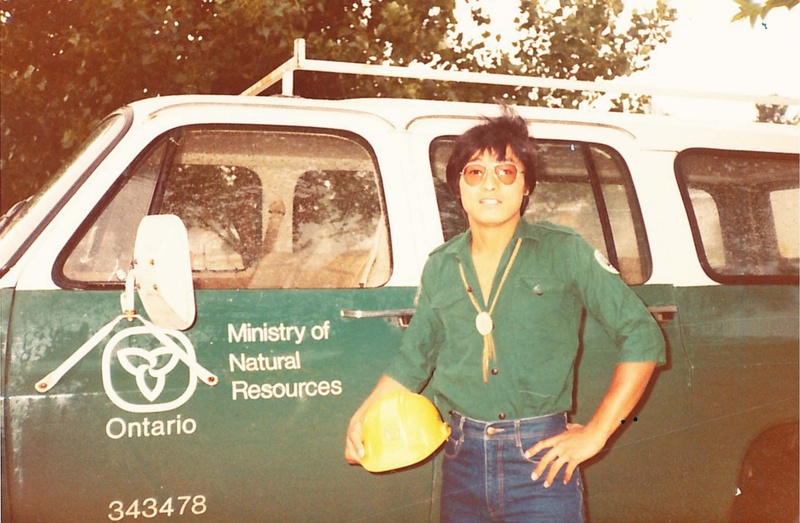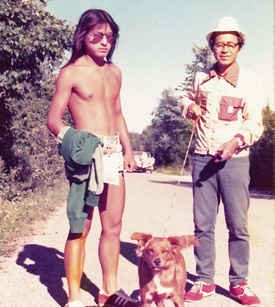Forging Asian Canadian Identity
JT: Being someone who prides himself on having the name Chink, I feel that people of the modern age are just too sensitive, and they take any cheap shots taken at their race, ethnicity, or sexuality way too seriously. Sticks and stones may break my bones, but names will never hurt me, eh? Hell, back then, a joke was a joke, meant to be a friendly tit-for-tat (can’t even say that word no more) exchange of poking insults that was part of a game, to see who gets the upper hand, and if you lost, you had fun exercising your imagination on how you would get your payback. And they let you stick it to them too.
The English language, unlike Japanese, has multiple slurs per nationality so the insult game goes a long way. Them were the good old days. Now, people cry over the smallest of things, and play the victim. I can see why Donald Trump is so popular amongst white voters. This political correctness thing has gone too far, and they see in him a hero who can say what he wants without being oppressed by anyone.
Black pride, gay pride, Asian pride, we are all allowed to be proud of what we are. But white pride is totally racist and unacceptable? What’s up with that? Nobody should get special treatment, everyone is equal, regardless of their race, but seems nowadays you get affirmative action in hiring practices and university admissions, catch and release judicial policies for minority thugs, banning “Try that in a small town.”
What about YG’s rap song about giving step-by-step instructions on how to home invade an old Asian couple? Didn’t get banned because they said it was art, and we must respect freedom of expression. What the hell, man? You ban the song about protecting yourself, but you support a song that encourages thugs to rob Asians? See, this is what I mean by not equal. PC is getting way out of hand, and it’s hypocritical if you ask me.
In 1981, I left the Soo for Windsor, to attend university there as a geology major. I had finished high school (grade 13) early, so I spent half a year in Nagoya before moving to Windsor. My dad had a sabbatical at Nagoya University, and I accompanied him and mom until the end of summer.
It was a life changing experience. I was no longer the gaijin I was in Canada. Although I could speak basic Japanese, I could not read or write, but I felt so much more at home in Japan than in the Soo.
The toilets were now up to par with Canada, and the food was great. What a difference a decade and a half makes! I should say that I really dug the idols on TV too, and fell instantly in love with Seiko Matsuda. Damn, she was cute!
I went back to Windsor unwillingly, where I spent my final year in Canada. In the fall of 1982, I left for Tokyo, where I would attend International Christian University (ICU).
My own mother, Sumiko, was the one who really instilled a love for Japan and things Japanese into her four kids. Just a kid during the internment, she passed on what she could. Was it your mother who kept you connected to the Japanese language and culture?
JT: Yes. Mom had an allergy toward English. We never brought English into the home, as you would not open up a pack of peanuts to someone with nut allergy. I would feel awkward speaking to my family in English, because it was so unnatural. However, when I spoke to my brother in Japanese in front of Canadian peers, they would complain about it, telling us to quit “chinking” and accusing us of talking about them behind their backs, which of course we were. I’m thankful to my mom for keeping English out of the house, as it allowed me to maintain basic Japanese language ability.
Unlike Issei scientist Yoshi Hayashi, my dad never had any intention of going back to Japan, despite my mom pleading to him to find a job back home. They had a lot of arguments regarding this issue, especially at times when our kin would pass away, and they could not attend their funerals. The price of a ticket back home would be the equivalent of several months' salary back then.
My mom was always homesick. I don’t blame her, as the Soo is as far from Japan as you can get. She never did master English during her stay, and her friends were Russian, East German, and Polish.
My brother, Hiko, left Canada a year before I did, and our departures exacerbated her loneliness. I remember she started talking about divorcing dad, and coming back to Japan by herself. It took her seven years to make that happen. Because of her inability to speak English, she was always dependent on my dad or us. This learned helplessness made her unable to make decisions or to act on her own. It was my dad who decided to initiate the divorce, and still then, she was saying that she will stay in the Soo by herself, so my brother went to fetch her to come live with us in Nagoya in 1989. She’s 93 years old now, and still genki, and loving every minute of her life.
Fighting For Our Right to be Canadian
I accept that being regarded as "different" or "the other" is part of my Canadian identity. It still really bugs me that even as a third generation Canadian, I still get those dirty looks and strange comments from white people questioning my place here and my right to belong, as though it's any of their business!
JT: It was difficult not to be aware that I was different. Those who knew me were just fine, but strangers were often disrespectful.
For instance, I would be lined up at the cash register of a store, and the clerk would be having a happy conversation with the white Canadian customer in front of me, but when it came to my turn, she would frown and talk really fast in a mumbled voice, just to prove my incompetence as a speaky-no-English. She got nastier when, to her dismay, I perfectly understood what she said and replied to her in even speedier Canadian English with added colour to it.
It’s the little things like these that have a huge impact on how you see yourself, and your place within society. So to make a long story short, I was definitely Canadian with my friends, but amongst strangers, I was never more than fresh off the boat.
I should also add that I was often mistaken as a First Nation. During my teens, I had long hair, and was darkly tanned in summer, so maybe that made people think I was.
I remember one time, I was jogging on the highway, and someone threw a beer bottle out of their window at 60 miles an hour, yelling, “Go back to your reserve Chief!” The First Nation kids thought of me differently from white kids, and I was friends with a lot of them. They hung out amongst themselves, but they would invite me for a toke during lunch break.
I noticed them laughing and joking when there were no white kids, but when there were, they would become solemn. Being the joker I was, I cracked this shameless, tasteless, raunchy joke amongst them when there were white kids around. But, damn, them bros had self-discipline. Some of them couldn’t hold their laugh and ran off, while others were staring at the floor with their heads shivering, trying to hold it off. After the white kids were gone, they called me a bastard and told me never to do that again!
There were so many characters in our hood, that there was never a dull moment. When I think back on those goofy times, my days in the Soo were precious. My brother and I reflect back on incidents where idiots got the crap kicked out of them out of just desserts, eliciting our laughs but not sympathy, and oftentimes we were the ones who did the kicking.
I got together with some friends on Zoom recently, and we talked about when we were in Grade 9, and they wanted to see my brother’s smut collection. Canada at that time had strict censorship on porn, so Hiko had to drive across the bridge to Michigan to smuggle his Hustler mag, the most explicit on the market. Having heard he had Hustler, my bros insisted on coming over to sneak into his room to spread open the centerfolds.
For some reason, Hiko came home earlier than usual, to find us getting high on his porn, and my friends jumped out of the house to avoid a butt kicking, leaving their boots behind. Hiko urinated in their boots, and filled them up with snow, hurling them into their faces. Their feet got frostbitten, but they said sneaking a peek at a Hustler mag was worth it. Those were the days you had to risk your life to see some quality porn. Nowadays, all you need to do is just turn on your internet, and you get all the smut you want… takes the excitement out of porn.
I headed to Ryerson Polytechnical Institute for journalism (Toronto) after high school in Georgetown. After finishing up at White Pines Collegiate and Vocational School you went on to university?
JT: I always had the best grades in school, and I got accepted at all three universities I applied to: University of Toronto (U of T), Waterloo, and Windsor. Anyone, especially if you are Asian, would tell you that you are crazy if you did not go to U of T, but that was my last choice, and Windsor was my first. I just wanted to be close to home, and Windsor was just five hours away via interstate freeway. Toronto would have been more than nine hours, on two-lane treacherous highways known for their head-on crashes.
Lots of Soo kids saw the same attraction in Windsor, so I was with friends there, and we would share rides back home. I majored in geology, looking for a future in geological surveying. Hiko was finishing up his program in Commerce in Windsor too, so I had a place to stay, and share the cooking. He eventually left soon after to go back to Japan, though.
© 2023 Norm Ibuki







